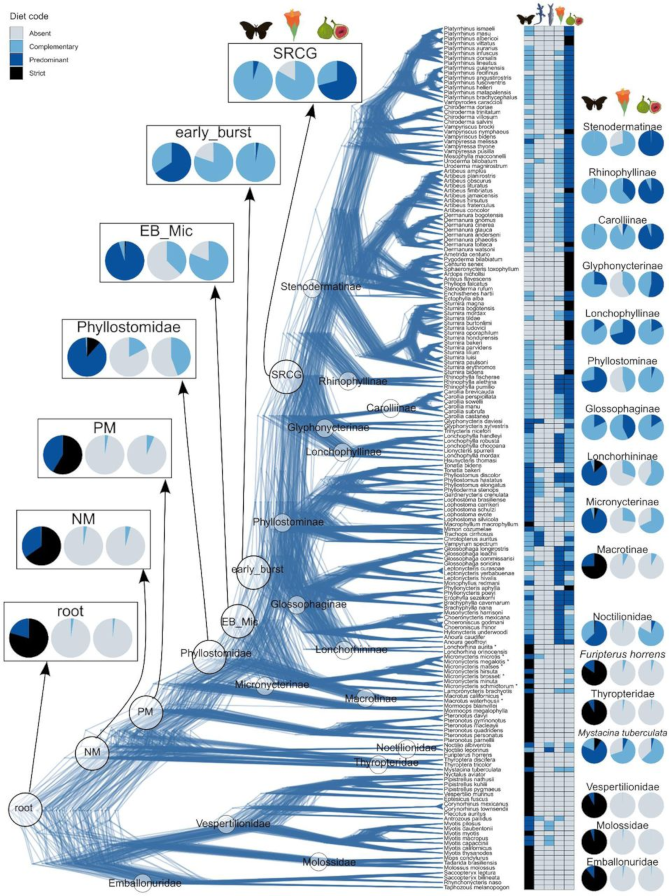19. Yi, X.✉, Kontopoulos, D.-G., and Hiller, M.✉ (2025). Comprehensive phylogenetic reconstructions support ancestral omnivory in the ecologically diverse bat family Phyllostomidae. Evolution qpaf154. 

Abstract:
Adaptive radiations often occur with an early burst which requires both various niches and a generalist ancestor. However, ancestral generalism remains hard to test. The New World leaf-nosed bats (family Phyllostomidae) represent an adaptive radiation with highly diverse diets including arthropods, nectar, and fruits. Ancestral omnivory may have facilitated the phyllostomid radiation, but previous estimations supported ancestral insectivory. These estimations were limited by single-trait models, constrained transitions, and unaccounted phylogenetic uncertainty. To address these limitations, we estimated ancestral diets through multi-response phylogenetic threshold models using discrete ordered diets (141 phyllostomid species) and multivariate Brownian motion models using continuous compositional diets (109 phyllostomid species) from published datasets, while explicitly accounting for phylogenetic uncertainty using published mammalian phylogenies. We infer complementary fruit feeding in the phyllostomid common ancestor and at the early burst of their radiation, supporting the ancestral omnivory hypothesis. Extending this analysis to all bat families (621 species) reveals independently evolved ancestral fruit feeding in four families, but only Phyllostomidae and Pteropodidae evolved predominant/strict fruit feeding and high species diversity. Therefore, our results reveal that ancestral generalism (i.e., omnivory) may be a precondition but does not necessarily lead to adaptive radiations which also require subsequent niche partitioning.
 citation
citation